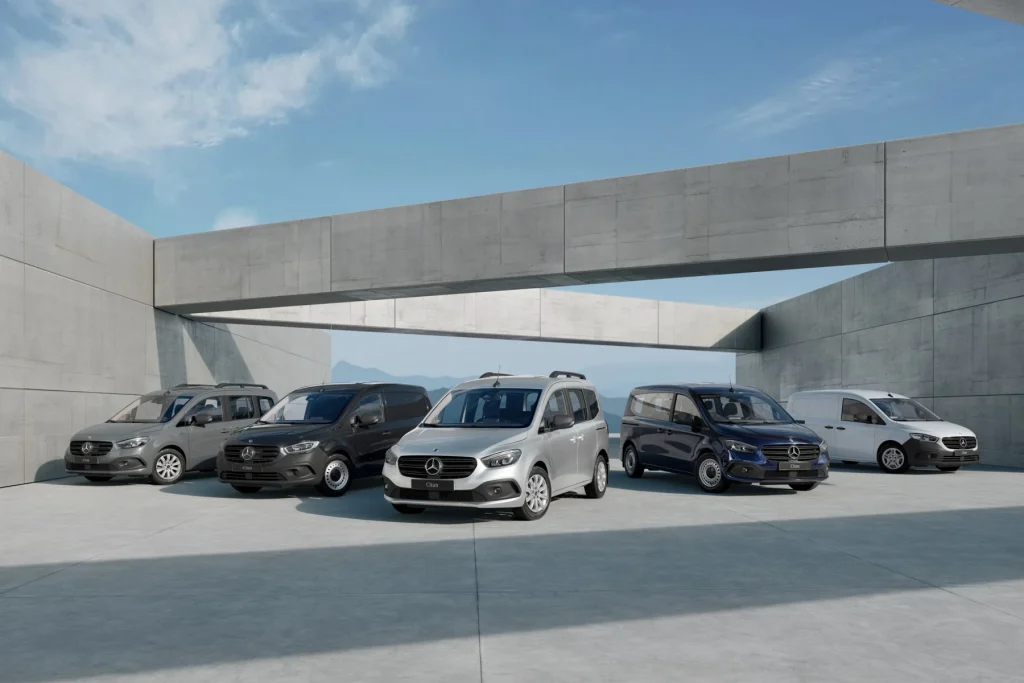Mercedes-Benz plans to withdraw from the small commercial vehicle segment and will discontinue the EQT and eCitan electric vans by the second quarter of 2026, according to German media reports citing an internal memo sent to dealers.
The two models, developed under a long-standing partnership with Renault, are manufactured at Renault’s Maubeuge plant in France and share the electric drivetrain of the Kangoo E-Tech Electric. Both the EQT and eCitan feature a 90 kW electric motor and a 44.5 kWh battery, offering a range of up to 278 kilometres under the WLTP cycle.
See also: Mercedes-Benz Vans to Introduce New Combustion Platform Alongside Electric Architecture
While the range may be sufficient for commercial delivery purposes, it has proved less compelling for private customers, especially given the higher pricing of the Mercedes models compared to their Renault and Nissan Townstar counterparts, which share the same platform and technology. The performance of the combustion engine variants, the Citan and T-Class, also fell below expectations. Mercedes-Benz sold 28,500 small vans in 2024, about 10% fewer than the previous year, with the segment accounting for less than a tenth of total van sales.
“In line with the ‘growth in profitable segments’ strategy communicated in May 2023, we are deploying our investments in a targeted manner and further optimising our product portfolio. We are therefore focusing on the midsize and large van segment in future and will end our involvement in the small van segment next year,” the company said, according to German publication Auto, Motor und Sport.
See also: Mercedes-Benz Vans CEE Partners with E.ON to Boost Fleet Electrification in Eastern Europe
The collaboration between Mercedes-Benz, Renault, and Nissan dates back to 2009 and included joint development of light commercial vehicles, powertrains, and components for various models. Most aspects of the alliance have since been phased out, with the small van program marking one of the final cooperative projects, now scheduled to conclude by mid-2026.
Despite ending production, Mercedes-Benz said it would continue to support existing customers. The automaker told dealers it would ensure spare parts for the Citan, eCitan, T-Class, and EQT remain available for up to 10 years, and mobility-related parts for up to 15 years after production ceases.
See also: auto-motor-und-sport.de, handelsblatt.com, automobilwoche.de
